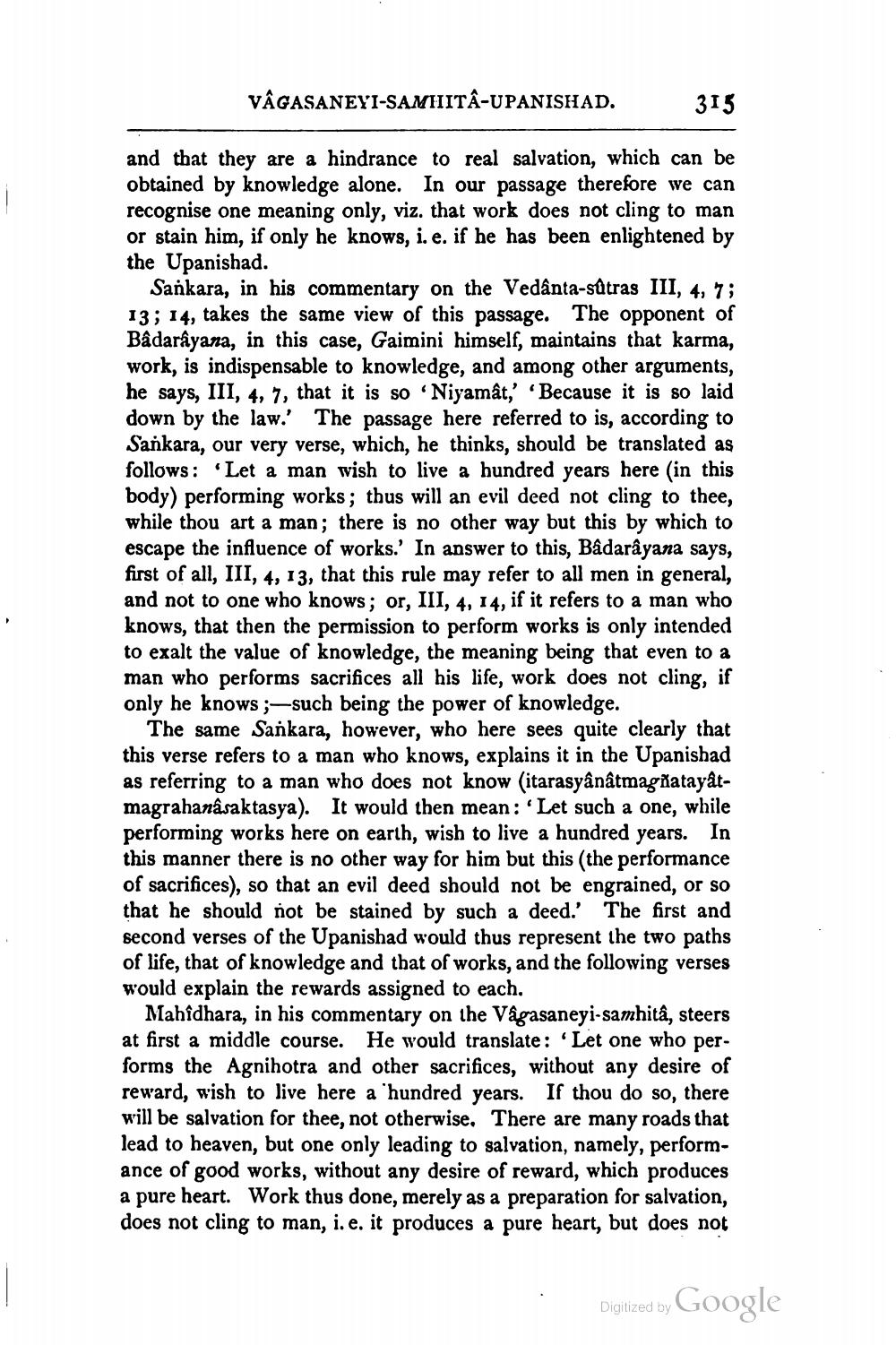________________
VÂGASANEYI-SAMHITÂ-UPANISHAD.
315
and that they are a hindrance to real salvation, which can be obtained by knowledge alone. In our passage therefore we can recognise one meaning only, viz. that work does not cling to man or stain him, if only he knows, i. e. if he has been enlightened by the Upanishad.
Sankara, in his commentary on the Vedanta-sútras III, 4, 7; 13; 14, takes the same view of this passage. The opponent of Bâdarayana, in this case, Gaimini himself, maintains that karma, work, is indispensable to knowledge, and among other arguments, he says, III, 4, 7, that it is so 'Niyamât,' 'Because it is so laid down by the law. The passage here referred to is, according to Sankara, our very verse, which, he thinks, should be translated as follows: Let a man wish to live a hundred years here in this body) performing works; thus will an evil deed not cling to thee, while thou art a man; there is no other way but this by which to escape the influence of works.' In answer to this, Badarayana says, first of all, III, 4, 13, that this rule may refer to all men in general, and not to one who knows; or, III, 4, 14, if it refers to a man who knows, that then the permission to perform works is only intended to exalt the value of knowledge, the meaning being that even to a man who performs sacrifices all his life, work does not cling, if only he knows ;-—such being the power of knowledge.
The same Sankara, however, who here sees quite clearly that this verse refers to a man who knows, explains it in the Upanishad as referring to a man who does not know (itarasyânâtmagñatayatmagrahanâsaktasya). It would then mean: 'Let such a one, while performing works here on earth, wish to live a hundred years. In this manner there is no other way for him but this the performance of sacrifices), so that an evil deed should not be engrained, or so that he should not be stained by such a deed.' The first and second verses of the Upanishad would thus represent the two paths of life, that of knowledge and that of works, and the following verses would explain the rewards assigned to each.
Mahidhara, in his commentary on the Vagasaneyi-samhita, steers at first a middle course. He would translate: Let one who performs the Agnihotra and other sacrifices, without any desire of reward, wish to live here a 'hundred years. If thou do so, there will be salvation for thee, not otherwise. There are many roads that lead to heaven, but one only leading to salvation, namely, performance of good works, without any desire of reward, which produces a pure heart. Work thus done, merely as a preparation for salvation, does not cling to man, i.e. it produces a pure heart, but does not
Digitized by Google




